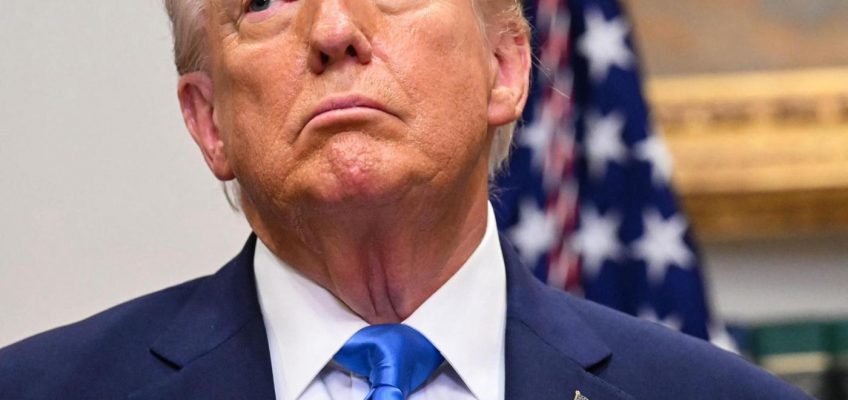By Jennifer A. Dlouhy, Bloomberg News
The Trump administration launched investigations into imports of robotics, industrial machinery and medical devices, setting the stage for fresh duties as President Donald Trump moves to expand his tariff regime.
Related Articles
What to know about the opposition around renaming new Pell grants after Trump
Judge fails to appear for court hearing in Eswatini over 4 men deported by the US
Hegseth abruptly summons top military commanders to a meeting in Virginia next week
Greenspan, Bernanke and Yellen urge Supreme Court to let Lisa Cook keep her job as a Fed governor
Donald Trump heads to the Ryder Cup, embraced by a golf world that once shunned him
The Department of Commerce is conducting the probes under Section 232 of the Trade Expansion Act, according to Federal Register notices. The inquiries started on Sept. 2. Under the law, which allows the president to tariff goods deemed critical to national security, the department has 270 days to deliver its policy recommendations.
The newly announced probes expand the potential sectors that could be exposed to tariffs, as Trump looks to encourage domestic manufacturing in key industries by hiking the cost of imports.
Investigations into imports of pharmaceuticals, semiconductors, aircraft, critical minerals, medium- and heavy-duty trucks, and other products are currently ongoing. The Trump administration has already used the law to impose levies on automobiles, copper, steel and aluminum.
Any levies resulting from the industry-specific probes would come in addition to Trump’s country-based tariffs, though some major economies such as the European Union and Japan have struck agreements to prevent the charges from stacking on top of one another.
The trade authorities are also seen as a backstop for Trump, should those sweeping tariffs on dozens of economies imposed under emergency powers be struck down by federal courts. The Supreme Court has agreed to consider a challenge to those tariffs, which have already been declared illegal by two lower courts.
Tariffs enacted under Section 232 can be more long-lived, even through changes in presidential administrations, though they take longer to implement than the duties Trump implemented under the International Emergency Economic Powers Act.
The new probes reflect some Trump administration officials’ concern about U.S. reliance on foreign countries for a range of medical consumables, including syringes, sutures, catheters and gauze. The Commerce Department will also scrutinize trade in personal protective equipment, such as the gloves and face masks that became ubiquitous during the COVID-19 pandemic.
The newly announced medical-equipment probe will not address prescription drugs, biologics and other pharmaceuticals, which already are being examined as part of the Commerce Department’s separate investigation.
The inquiry into robotics and industrial machinery will focus on computer-controlled mechanical systems, milling machines and stamping and pressing machines widely used in factories, according to the register notice.
(With assistance from Laura Curtis.)
©2025 Bloomberg L.P. Visit bloomberg.com. Distributed by Tribune Content Agency, LLC.


Leave a Reply